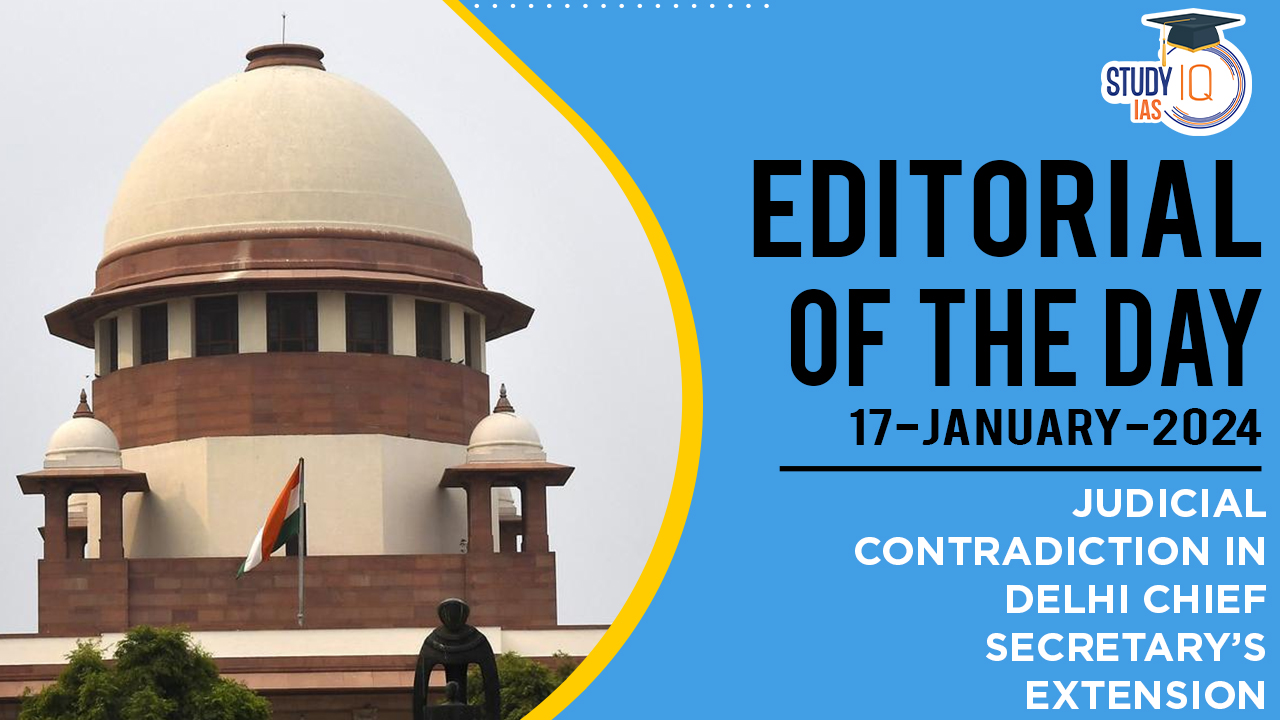Table of Contents
Context: Supreme Court’s Order on Delhi Chief Secretary Extension Raises Concerns About Judicial Self-Abnegation and Constitutional Validity.
Issues with the Recent Judgement
- Contradiction with the Services Judgment: The Supreme Court’s November 2023 judgement allowing a six-month extension to Delhi’s Chief Secretary Naresh Kumar contradicts The decision conflicts with the Court’s earlier Services judgement, which granted the Delhi government control over services under Article 239AA of the Constitution.
- Ignoring Royappa Case: The court failed to consider the Royappa case, which emphasised the need for rapport between the Chief Secretary and the Chief Minister, and the importance of the Chief Secretary complying with the elected government’s directions.
- Lack of “full justification” and “public interest”: The extension was granted despite allegations of corruption against the Chief Secretary and the Delhi government’s opposition.
- Unilateral Extension by Centre: The Centre unilaterally extended the tenure without the Delhi government’s recommendation, undermining their control over services.
We’re now on WhatsApp. Click to Join
Earlier Interpretation
- Services Judgement (May 2023): The Delhi government has control over services in Delhi.
- Royappa Case: The Chief Secretary must have a rapport with the Chief Minister and comply with the elected government’s directions.
Impact Of The Judgement
- Undermining Democratic Functioning: The decision is seen as weakening the democratic structure of Delhi’s administration by undermining the elected government’s control and accountability.
- Erosion of Accountability: By allowing the central government to unilaterally extend the Chief Secretary’s tenure, the judgement disrupts the chain of accountability essential for democratic governance.
- Potential Distrust in Governance: The unilateral extension might perpetuate distrust between the elected government and the bureaucracy, affecting overall governance.
- Deviation from Established Legal Principles: The article argues that the judgement deviates from established legal principles and the Court’s own past wisdom, questioning its adherence to constitutional logic.


 6th BIMSTEC Summit 2025: Key Highlights,...
6th BIMSTEC Summit 2025: Key Highlights,...
 World Health Day 2025, Theme, History an...
World Health Day 2025, Theme, History an...
 BIMSTEC Countries in 2025, Significance ...
BIMSTEC Countries in 2025, Significance ...





















